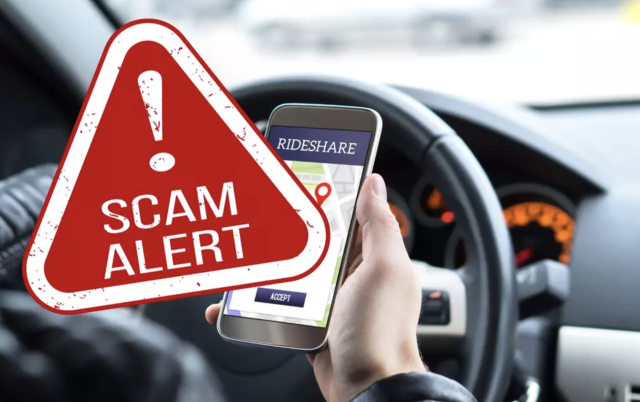Illegally earned $40 million, 800 online hailing drivers in Greater New York were involved…
A massive, multi-year ridesharing scam has been uncovered, with tens of thousands of dollars in losses leaving the public stunned.
A New Jersey man and his accomplices managed to extort riders and make huge illegal profits by manipulating the GPS of bike-sharing drivers, according to a case released by the U.S. Attorney’s office for the Eastern District of New York.
Key details
At the center of the scam was Carlos Arturo Suarez Palacios, 54, who was arrested at his home in Brick Township, New Jersey.
The FBI revealed that Palacios and his accomplice, Eliahou Paldiel, 52, ran the scheme from Queens, New York, for nearly six years.
The scam works by getting Uber riders to pay fake “rush hour surcharges” – extra fees that Uber charges when demand spikes in certain areas – that actually subsidize drivers who illegally take priority.
The documents also show that they sold tampered smartphones to drivers for $600 each, with three illegal apps pre-installed to make the operation possible.
Among the 800 phones with the illegal programs was an app called Screwber, which bypasses phone security updates and allows ride-hailing drivers to sift through numerous orders for more expensive ones with longer routes. This behavior completely breaks the original fairness of the ride-sharing platform and gives participants an unfair competitive advantage.
Between November 2018 and August 2024, Paldier and Palacios allegedly sold jailbroken phones to co-conspirators that contained the “Fake GPS” and “Screwber” apps, as well as older ride-sharing apps that could not detect the illegal apps being used.
The “Fake GPS” app allows drivers to manipulate their location to make it look like they’re in a fare increase zone, even when they’re not. The ‘Screwber’ app, meanwhile, provides drivers with destination information and estimated fares for potential carpool users, allowing them to choose the most lucrative rides.
The scam is estimated to have allowed ride-hailing drivers to rake in as much as $40 million in illegal income from their passengers. Paldier and Palacios each earned about $1.5 million.
Breon Peace, U.S. attorney for the Eastern District of New York, and Christie M. Curtis, acting assistant director of the FBI’s New York Field Office, announced the arrests and charges.
“Eliahou Paldiel and Carlos Suarez allegedly developed a ride-sharing app that fraudulently manipulated drivers’ GPS locations to obtain illegal peak fares, defrauding customers and legitimate drivers alike. For nearly six years, this alleged conspiracy provided an unfair financial advantage to more than 800 participants, undermined the integrity of ride-sharing services across the country, and benefited participants by more than $40 million. “The FBI will continue to fight all fraud, even when criminals try to create innovative scams for their own personal gain,” said Acting Assistant Director Curtis.
At this point, the indictment does not specifically name the ride-sharing company affected, but replaces it with the name “Ride-sharing Company 1” and describes it as “a Us-Based multinational company that provides ride-sharing services.” While the two ride-sharing giants, Uber and Lyft, have not commented publicly, whether their drivers were involved remains to be further investigated.
There is currently no clear path of recourse for the affected passengers. As the exact number of passengers affected has not yet been determined, once more details are revealed, it could trigger a class action lawsuit against the ride-sharing companies involved. However, drivers involved in the scam could also face legal liability.
Relevant case
The scam is not the first crime targeting the sharing economy. Similar cases of fraud have emerged in recent years, suggesting that technological advances have also brought new forms of crime.
According to the FBI, the number of fraud cases against sharing economy platforms increased by nearly 35 percent between 2019 and 2023. The cases involve not only ride-sharing services, but also short-term rental platforms, bike-sharing and food delivery services.
Similar cases in the past have shown that victims often do not receive compensation quickly. In a 2018 fraud involving short-term rental platform Airbnb, for example, it took nearly two years for the victim to receive partial compensation. This situation shows that despite the multiple security measures these platforms have put in place, new types of tech scams continue to evolve, creating new challenges for consumers.

